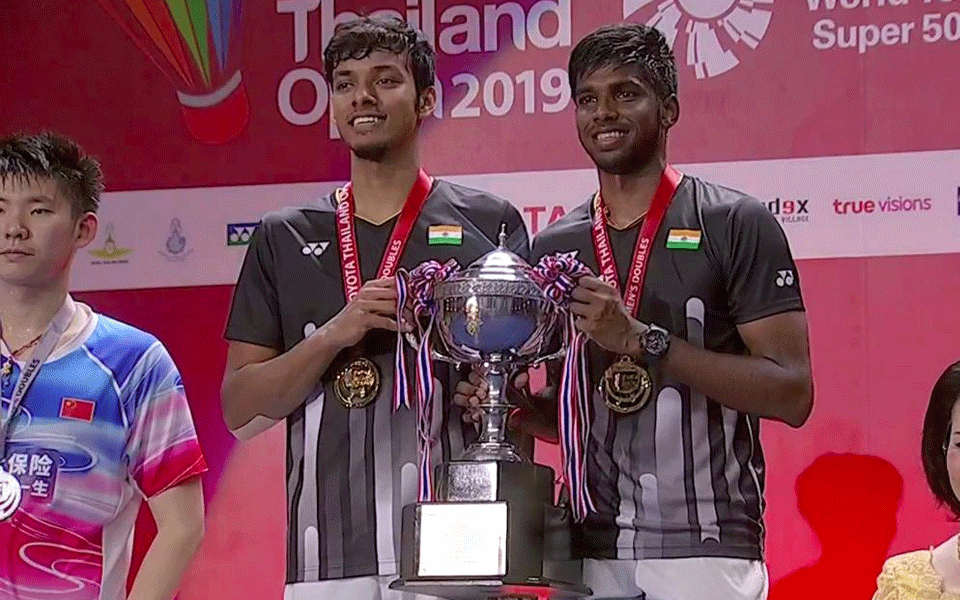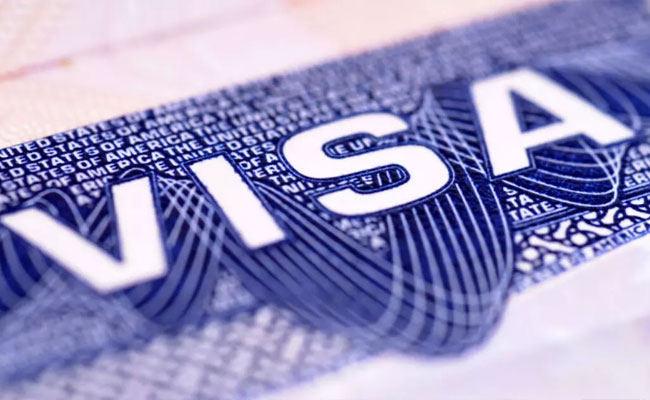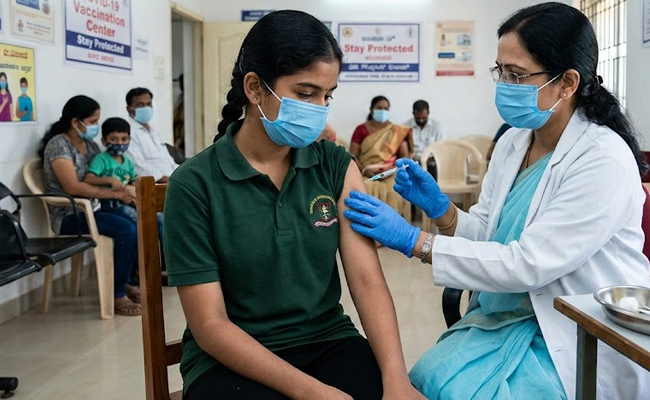Bangkok: Satwiksairaj Rankireddy and Chirag Shetty on Sunday became the first Indian pair to win a BWF Super 500 badminton tournament with a hard-fought victory over Li Jun Hui and Liu Yu Chen of China in the summit clash of Thailand Open here.
The unseeded Indian duo prevailed 21-19 18-21 21-18 over the third seeded Chinese pair after battling hard for an hour and two minutes.
It was the first final of the 2019 season for Rankireddy and Shetty, the men's doubles silver medallist at 2018 Commonwealth Games.
Rankireddy and Shetty got off to a good start as they broke away from 3-3 early on and moved ahead to open up a 10-6 lead, but their Chinese opponents kept breathing down their necks and made it 14-14.
It was a closely fought affair after that and the world No. 16 Indian pair could take a slight edge only at 20-18.
Although the Chinese duo narrowed down the gap further to 19-20, the Indians managed to win the crucial point to wrap up the first game.
In the second game, the Indians managed to take an upper hand as they moved to a 6-2 lead but the Chinese soon bridged the gap to 5-6 before catching up with them at 11-11.
After the interval, the Chinese duo surged ahead to 13-11 but the Indians lifted their game and drew parity at 13 apiece.
The Indians then overtook their opponents to 16-14 and then climbed up to 18-16 before the Chinese pair won five consecutive points to stun the Indians and take the match to the decider.
Rankireddy and Shetty were slow off the blocks in the third game but managed to make it 6-6. From there on, the Indians never looked back and kept their composure to maintain the edge over their rivals till the end.
Even though the Chinese pair fought back and at one stage reduced the gap to 18-19, the Indians looked in no mood to climb down and went on to pocket two consecutive points to seal the match in their favour.
Let the Truth be known. If you read VB and like VB, please be a VB Supporter and Help us deliver the Truth to one and all.
London (PTI): The UK on Wednesday imposed a study visa ban on four countries accused of using the route as a backdoor entry to seek permanent refuge in the country, as part of a wider clampdown on the soaring rates of asylum applications.
The so-called "emergency brake" on student visas applies to Afghanistan, Cameroon, Myanmar and Sudan, with Afghans also subject to a skilled worker visa ban following a major surge in asylum claims from these countries.
The move comes as UK Home Secretary Shabana Mahmood introduces new legislation in Parliament this week, with the visa brake to be introduced via an Immigration Rules change on Thursday to come into force on March 26.
"Britain will always provide refuge to people fleeing war and persecution, but our visa system must not be abused," said Mahmood.
“That is why I am taking the unprecedented decision to refuse visas for those nationals seeking to exploit our generosity. I will restore order and control to our borders,” she said.
According to official statistics released by the Home Office alongside the visa ban announcement, asylum applications by students from Afghanistan, Cameroon, Myanmar and Sudan rocketed by over 470 per cent between 2021 and 2025 – making them among the most likely nationalities to claim asylum.
Meanwhile, the number of Afghans on work visas claiming asylum now outstripping the number of visas issued.
In what has been described as an “unprecedented step”, the Home Office said it will end sponsored study visas from all four countries and skilled worker visas for Afghan nationals.
“Tough action is required as asylum claims from legal routes have more than trebled since 2021 – making up 39 per cent of the 100,000 people who applied last year. In total, 133,760 people have claimed asylum after arriving legally in the past five years,” the Home Office said.
It said these refugees end up having to be accommodated at the expense of the British taxpayer, with an “above average proportion” of people from the four countries claiming destitution.
“Asylum support is currently costing more than 4 billion pounds a year – with nearly 16,000 nationals from the four countries currently supported at public expense, including over 6,000 in hotels," it added.
According to official data, between 2021 and the year ending September 2025, the proportion of Afghan asylum claims to study visas issued was 95 per cent, applications by students from Myanmar soared 16-fold over the same period and claims by students from Cameroon and Sudan spiked by more than 330 per cent.
The government pointed to its success in reducing student asylum claims by 20 per cent over the course of 2025, but stressed that further action is needed as those arriving on study visas still make up 13 per cent of all claims in the system.
The visa ban announcement comes on the back of Mahmood's announcement earlier this week that asylum status in the UK will be temporary, to be reviewed after 30 months.





